The activities of the German Technion Society include the targeted promotion of young scientists, support for general student exchanges and cooperation and support for existing programs.
Targeted promotions
Life Science Network (LSN)
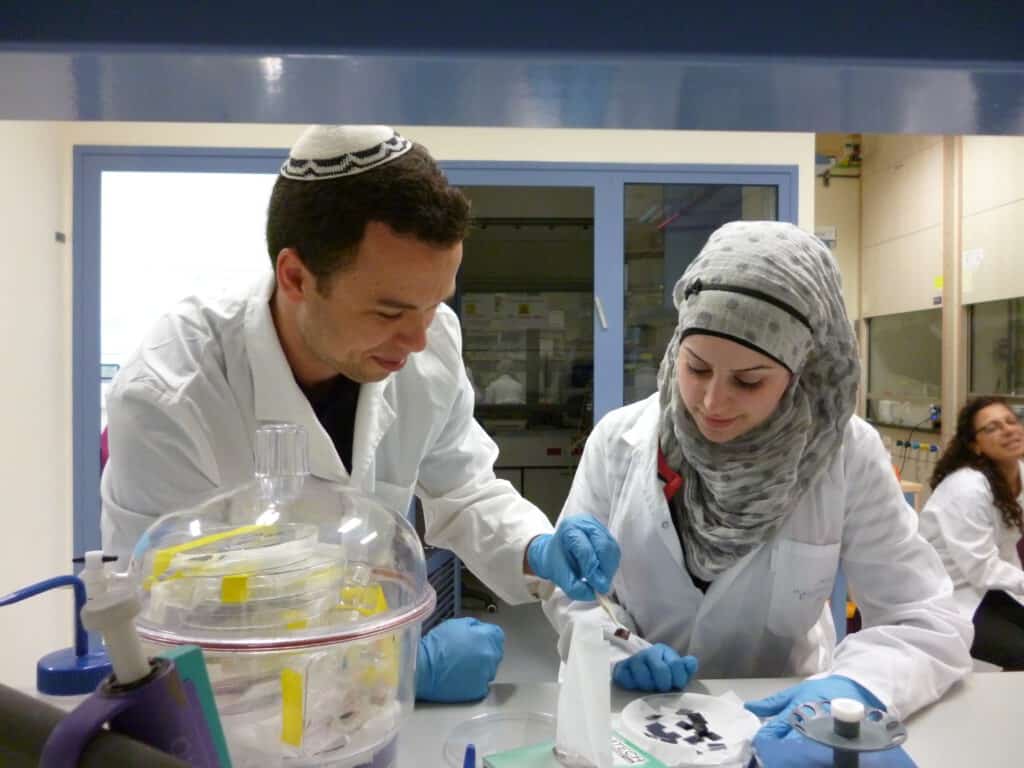
The Life Science Network (LSN) of the German Technion Society enables scholarship holders to supplement their academic education with a practical and challenging experience abroad at the Technion. A research internship at a non-European university provides both academic and cultural experience in one of the most politically and religiously exciting countries in the world. In the best case scenario, the home university will recognize the achievements as credits.
The LSN was developed by the German Technion Society in 2006 and is implemented, adapted to current requirements and regularly evaluated. Initially, Master’s and PhD scholars from the field of life sciences received a scholarship for 4-6-week research stays in Technion laboratories, or Technion students were able to conduct research in Germany. In the first few years, the program on the German side was limited to Leibniz Universität Hannover and the MHH; from 2013, the DTG developed the Life Science Network (life-science-net.de), which initially involved five German universities (TU Dresden, TU Berlin, TU Hamburg-Harburg, TU Hanover and TU Munich) and the Technion in Haifa. Funds from the Reinhard Frank Foundation (reinhardfrank-stiftung.org) were used to support up to 50 students each year with € 1,000 each. The aims of the private foundation and the DTG include not only promoting science, but also networking young scientists with each other and getting to know future scientific cooperation partners at an early stage.
Over the years, the program has been expanded to 8-10 week and 12-week research stays with adjusted scholarship amounts. Field reports from the scholarship holders give an impressive picture of their work in the laboratories of the host university, but also of the experiences they had in the host country.
The state of Lower Saxony has adopted the 2021 research internship program as an example and extended it to applicants from all universities in Lower Saxony, as well as Israeli universities and universities in the West Bank. Since then, the ILSSE program(ilsse.de) has been funding research internships for 4-6 weeks, regardless of department.
Applicants from Lower Saxony should apply on the ILSSE website, those from other federal states can find out more on the Life Science Network website.
Travel grants (conference grants)
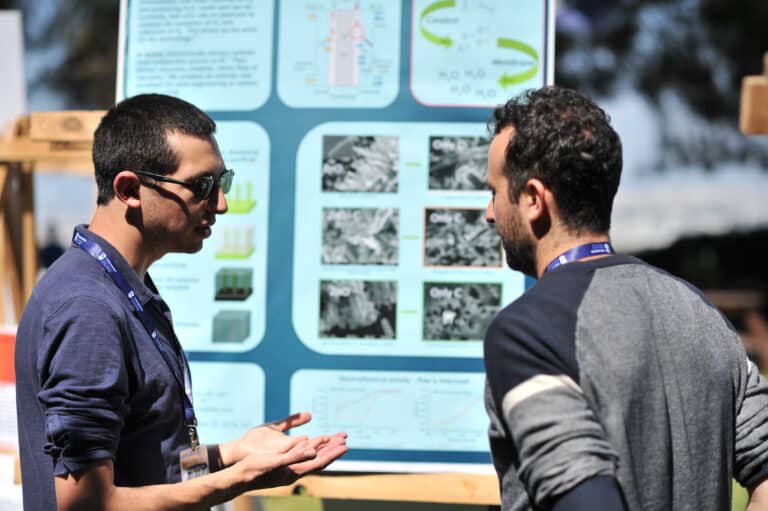
Travel grants (conference grants) for young scientists from Israel and Lower Saxony in the amount of max. 750 has been awarded by the DTG on application since 2012 with the help of the State Association of Jewish Communities of Lower Saxony.
In addition to a poster presentation of their research at the congress, the young scientists are also expected to present it to at least one working group at a university in Lower Saxony with which they would like to cooperate in the future. The same applies to Master’s and doctoral students from Lower Saxony at the Technion in Israel. Scholarships can be applied for informally at the DTG. The working group to be visited must be named in the application. The Executive Board decides on the award
The aim of the program is
- greater links between young Israeli academics and universities in Lower Saxony (and vice versa) and
- an expansion of the dual-doctorate agreements that currently only exist between LUH and the Technion.
- In addition, more young Israeli scientists should be able to complete research stays in Lower Saxony and find cooperation partners at universities in Lower Saxony.
Each scholarship is accounted for by submitting receipts and vouchers. The DTG will provide evidence of this to the funding body two months after the conference visit.
If interested, applications should be sent to the DTG(office@dtgev.de)
Kick-off cooperation grants
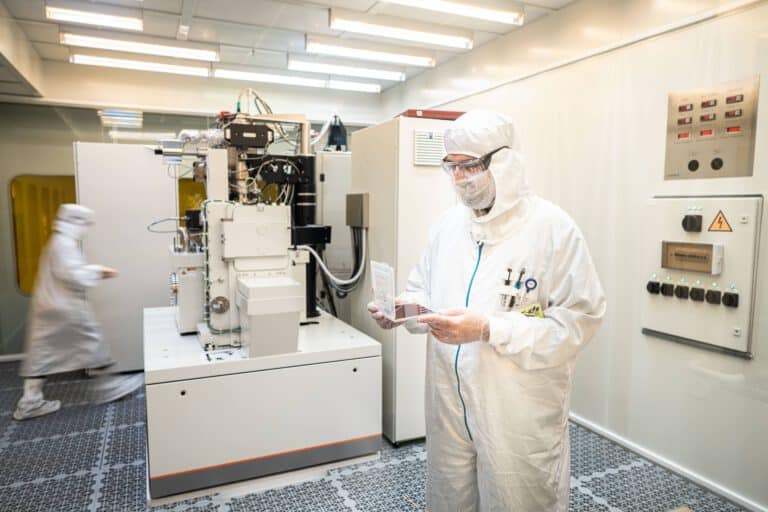
The DTG’s Kick-off Cooperation Grants of €5,000 are aimed at young scientists from Israel and Lower Saxony in the field of life sciences: PhD and PostDoc students can use these funds to set up a joint research cooperation; the money can be used for travel and preparatory work.
For the DTG’s Kick-off Cooperation Grants, a research proposal is expected to be submitted to one of the known funding bodies within one year. The scholarships can be applied for informally within the first three months of each year, with a brief description of the intended cooperation and the use of funds to the DTG. A committee of scientists from the life sciences department reviews and comments on the applications. The DTG board decides on the award (max. €2,500 for the Israeli and Lower Saxony partners).
The aim is to promote cooperation between young scientists:
- closer links between the Technion and the universities in Lower Saxony,
- the joint submission of applications for scientific collaborations,
- better networking of young scientists from Lower Saxony and Israel and
- the joint appearance at funding institutions at national and international level.
Each scholarship is settled via payments on account, which must be verified by submitting receipts and supporting documents. DTG will provide evidence of this to the funding provider two months after the end of the term. 2,000 per applicant(s) in advance, €500 per applicant(s) if a cooperation application is submitted within one year.
General subsidies
Student Exchange Fund
Since 1987, the German Technion Society has maintained a student exchange fund that provides financial support to German students at the Technion and Technion students in Germany for a one- or two-semester student exchange. The funds are administered in Haifa and DTG oversees the selection and awarding of scholarships to applicants from both countries. Applications can be sent at any time by e-mail to the office (office@dtgev.de) at any time. The completed form must be enclosed with the application.
Umbrella Symposium
Since 1983, the annual meetings of the Umbrella Symposium . In the early years, the DTG supported the organization of the networking meetings and, on request, also covered travel costs for young Israeli academics who had no other funding to attend the conference.
Since the establishment of the Umbrella Award, DTG has sponsored the Israeli winners with €5,000 each. This prize money is in turn to be used by the prize winners for German-Israeli scientific cooperation. The Umbrella Committee of the three research institutions evaluates all applications submitted each year and selects the winners.
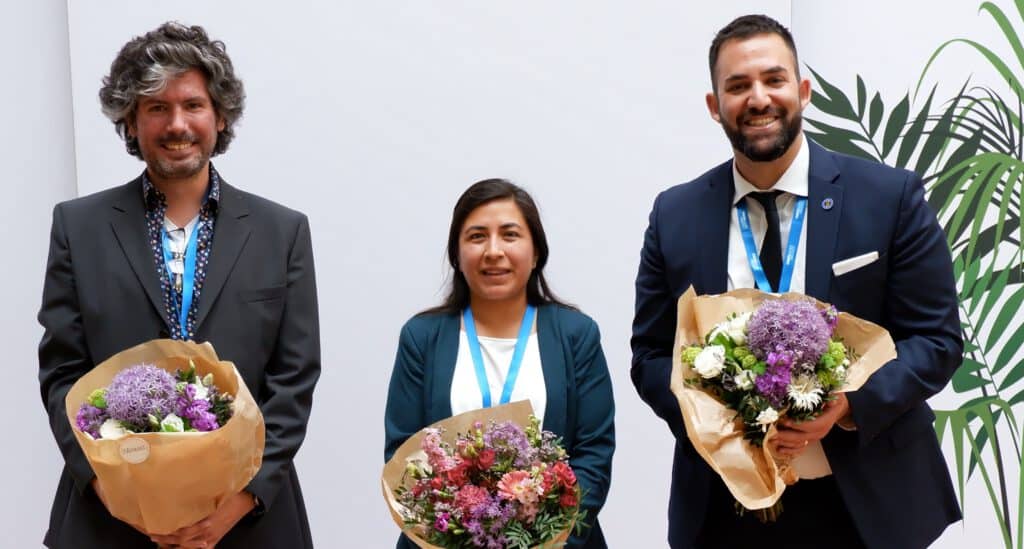
Green Photonics Symposia
As part of the “Green Photonics Symposia” and “Symposia on Quantum Physics” sponsored by the Reinhard Frank Foundation, seed money is awarded for innovative research ideas from young scientists on the current conference topic. The prerequisite is participation in the symposium and a subsequent application. Interested parties can request future conference dates by e-mail from the office (office@dtgev.de).
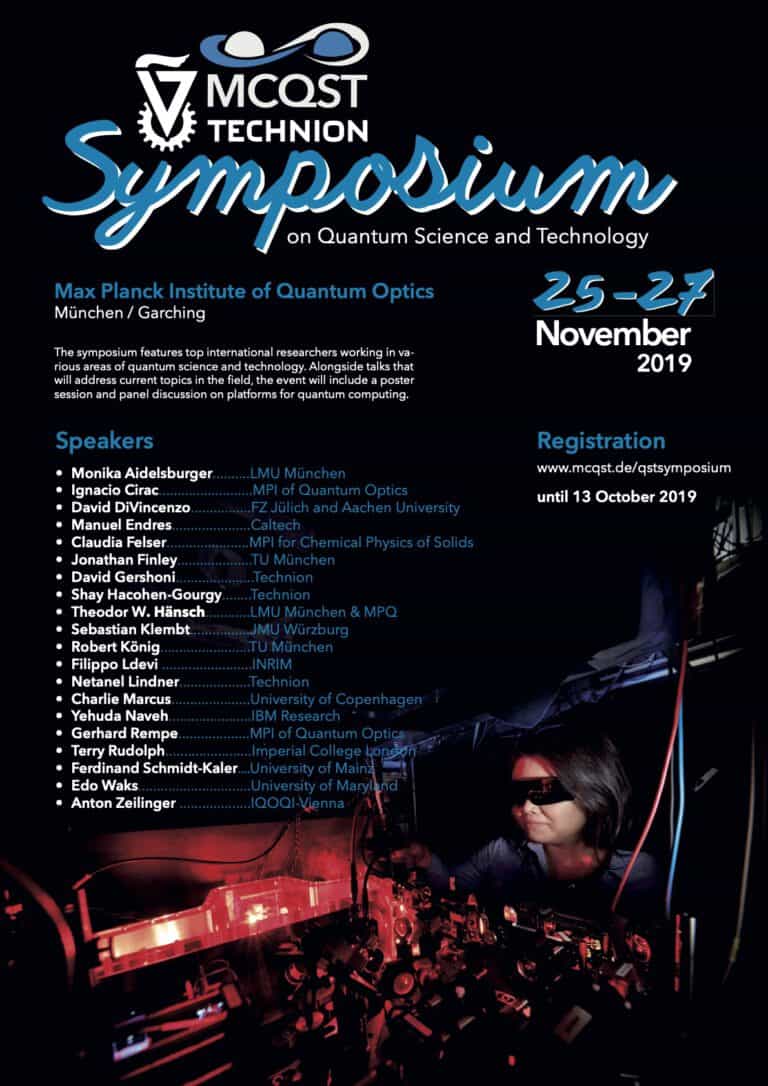
Administrative support for existing programs
The German Technion Society plays an administrative role in supporting the HPRC-Technion Research School, which was established in 2009 by the Hasso Plattner Institute together with the Technion.
Since 2019, the HPI has been funding up to 15 Technion doctoral students from the fields of computer science and electrical engineering each year through the DTG. Funds for the students and supervisors are requested and managed in a timely manner, and the travel expenses of the scholarship holders for conferences are also monitored. In addition, the DTG advises the contractual partners and the beneficiaries. More about the HPI Research Schools at the Technion and worldwide.